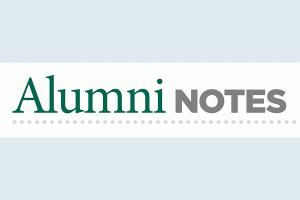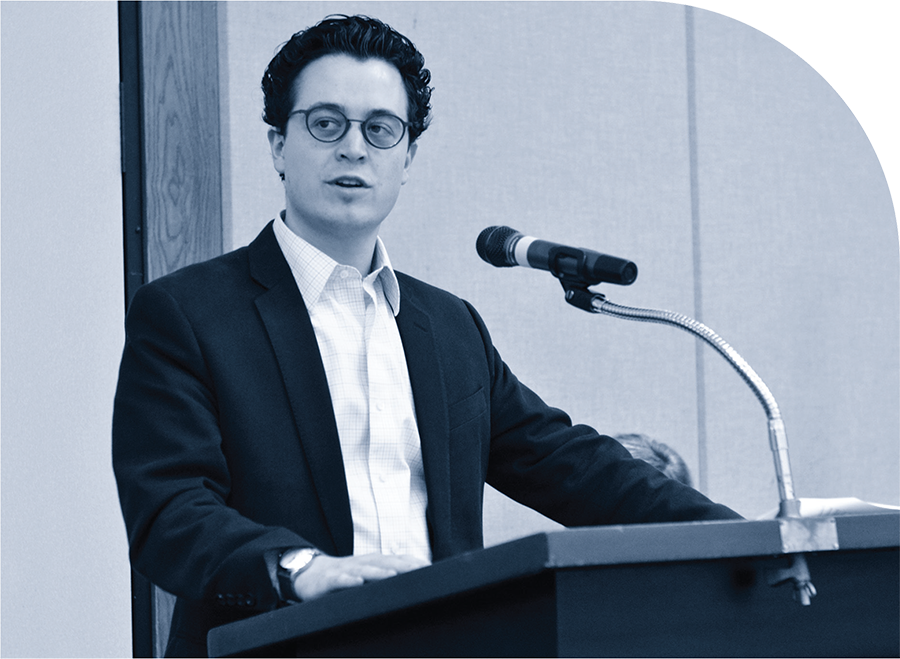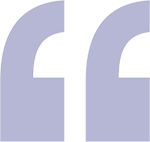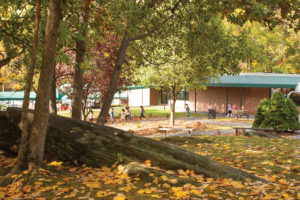
Alumni Notes
Fall/Winter 2020-2021

Alumni Profile:
A Social Justice Superstar
Although he graduated from the Middle School in 1998, Rabbi Aaron Weininger still has fond memories of many of his teachers from The Leffell School / Schechter Westchester. He credits them with helping him become a strong writer and an active listener, skills which he calls on over and over again as a rabbi at Adath Jeshurun Congregation in Minnetonka, MN. His teachers also helped him develop a sense of curiosity and a keen awareness of the world outside of school walls.
Because Leffell/SW did not have a high school back then, Rabbi Weininger instead attended the Solomon Schechter High School in Manhattan. By the beginning of tenth grade, after returning from a USY on Wheels trip, he was able to articulate his hope to become a rabbi. At the time, the Conservative movement was not ordaining openly LGBTQ clergy. Shortly after receiving undergraduate degrees in Anthropology and Jewish Near Eastern Studies from Washington University in St. Louis, MO, he made history as the first openly gay person to be admitted to rabbinical school at the Jewish Theological Seminary and was ordained as a Conservative rabbi in 2012. He joined the clergy team at Adath Jeshurun that summer and is proud to call the Twin Cities home.
Rabbi Weininger was thrust into the spotlight recently when George Floyd’s murder became a lightning rod that ignited the racial justice movement across the country. When Minneapolis exploded with protests and the threat of looting and violence, Governor Walz called upon faith leaders around the city, including Rabbi Weininger, to attend an impromptu press conference to encourage residents to protest peacefully and observe a curfew. Because it was Shabbat, Rabbi Weininger wasn’t able to prepare written remarks. When he was unexpectedly called on to speak, he did so extemporaneously for three minutes. Video clips of his powerful speech went viral and he heard from people across the globe who were moved by his remarks.

We must fight the pandemic of racism with the same resolve, tenacity, and compassion that we are fighting Covid-19. There is no excuse to do anything different as we remember George Floyd as a blessing … We read in Deuteronomy, ‘Justice, justice, you shall pursue.’ The rabbis pose the question, ‘Why is the word justice repeated twice? Tzedek, tzedek, tirdof.’ I want to suggest that … [this is] because we have to name and call out the injustice in front of us. The current moment that we’re in, the horrible murder of George Floyd, name it for what it is. The brutality, the racism, calling out that first ‘justice’ clearly and unambiguously, and that second ‘justice,’ is for us to reflect how we do that.

Chesed has always been important to Rabbi Weininger, who says “It’s a part of me in the same way that so much of Torah is a part of me … the Torah is constantly asking me to reflect on how I am in relationship with the world around me. The Torah itself is a political document that reflects on how to build a just society, so if I want to take Torah seriously, I have to be reflective and act upon my commitments to justice.” He is grateful to those around him who have modeled different ways of doing this and hopes that, as they each take on individual pieces of this work, it collectively drives us towards a better world. The murder and ensuing protests heightened his awareness of how Black Jews and people of color feel both invisible and incredibly vulnerable, and he plans to continue raising these issues in both his congregation and his community.
When Rabbi Weininger reflects on his time at Leffell/SW, he recognizes how his teachers influenced the way he thinks about himself in relationship to the world. His formative years at Leffell/SW and Beth El Synagogue in New Rochelle continue to shape the way he thinks about community to this day. He has even written sermons about how this community continues to show up, in good times and bad, to bear witness to life.
In Rabbi Weininger’s Confirmation class, he focuses on the concept of questions. He wants his tenth grade students to understand that in life, as soon as you answer one question, it often prompts a new one, and this cycle is ongoing. He shared, “One of the greatest gifts of Jewish life is that we’re always invited to be asking questions and to be curious, and that excitement carries us not only through school, but through every interaction we have with our family, our friends, and our community.”
Share

Students from the Same Class Aspire to Become Rabbis